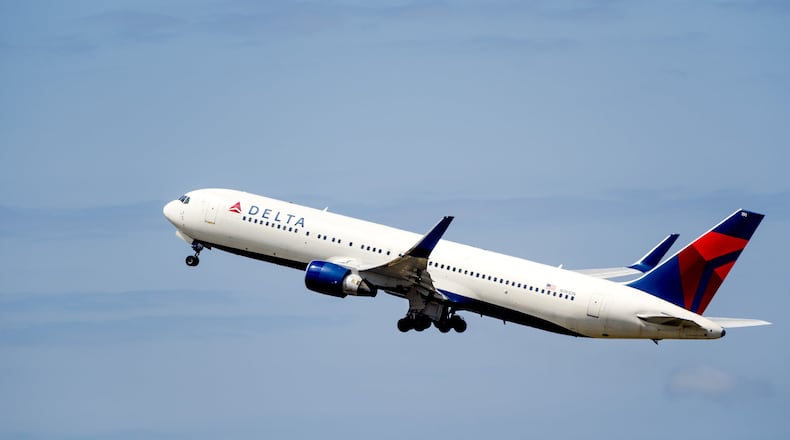In the beginning, the Georgia Legislature created an ill-advised tax on jet fuel. Ever since then, lawmakers have been tinkering with the tax in even more ill-advised ways -- culminating with their sudden showdown with Delta Air Lines over the latter's unrelated fight with the National Rifle Association.
Before we get to the gory specifics of the NRA vs. Delta vs. General Assembly battle royale, it’s worth reviewing how many times and how many ways this policy has been approached wrongly:
- The tax on jet fuel used for commercial aviation was a bad idea from the get-go, because it is a tax on a business input. This leads to tax pyramiding, which is a tax on a tax and is generally bad tax policy. Recognizing this, most states already don't tax jet fuel used for commercial aviation. Georgia's tax on the fuel was one of the highest among states with major commerical air travel hubs.
- The next bad move arguably dates back to 1987, when the federal government began requiring any state and local tax revenues from jet fuel to be spent on aviation-related purposes, unless the tax was already in existence. (At least part of Georgia's tax and local sales taxes on jet fuel violated this rule.) By grandfathering in certain taxes, the FAA kept certain state and local governments partially dependent on bad tax policy.
- Fast-forward to 2005, when Atlanta-based Delta filed for Chapter 11 bankruptcy. Eager to help a vital local employer, the General Assembly created an exemption to 1 percentage point of the state's 4 percent sales tax on jet fuel. The problem this time? Giving one company a special preference over others, when the tax is bad policy in the first place.
- Skip ahead now to 2012, when although Delta had re-emerged as a financially stronger company, the Legislature made the tax exemption permanent -- but again, not for all airlines.
- In 2015, seeking revenue to pay for road and bridge improvements -- and galled both by Delta's strident opposition to religious-liberty legislation the previous year and its CEO's comment that Georgians couldn't "get chicken" about raising taxes for roads -- lawmakers eliminated the exemption. Thus, they effectively punished a company for its political speech, which should sound familiar given the current controversy, and restored bad policy on all rather than moving to end it for all.
- Finally, this year Delta came back with a new request: Remove the tax for all commercial airlines, not just themselves. Some of the arguments for doing so were specious: One was that overseas companies creating jobs in Georgia want more direct flights to Atlanta, which the company hinted, but refused to guarantee, would be more possible without the tax in place -- all of which ignores that Hartsfield-Jackson airport is designated a Free Trade Zone by the federal government, meaning fuel for international flights already is generally exempt. But set that aside. The tax is bad policy, so ending it is better policy. And doing it for everyone, not just one company, is the proper way to go about it.
That finally brings us to Saturday, when Delta hastily announced it would no longer include the NRA in a discount program designed for any group with a large number of travelers bound for a convention. (The silliness of boycott threats against Delta for giving the widely available discount to NRA members once a year, when they travel to the NRA’s annual convention, is another topic unto itself.)
By then, the jet-fuel tax elimination had been included in a much broader tax bill that had already been passed by the House and approved by the Senate Finance Committee. The Delta part wasn't necessarily popular with some lawmakers, but they had gone along with it in order to get the other parts of the bill, including their long-desired reduction in the top income-tax rate.
Before Monday’s session had ended, though, Lt. Gov. Casey Cagle, who just so happens to be the leading GOP contender in this year’s gubernatorial election, tweeted this out:
Just when you thought Georgia had run out of bad ways to approach this particular tax ...
This entire situation is the bitter fruit of creating bad tax policy in the first place, and then turning it into a matter of corporate welfare by selectively exempting some but not all airlines from the tax at various times. It’s another reminder that corporate taxation is an area ripe for bad policy born of political motivation, both in the increases and the decreases.
It was wrong to treat the tax as a political pinata or source of cronyism over the years. I understand the impulse to respond to politics on Delta’s part with politics of their own, not least because this isn’t the first time the company has misfired in this way. But if it was wrong before, it’s also wrong for legislators to do it again now.
About the Author


